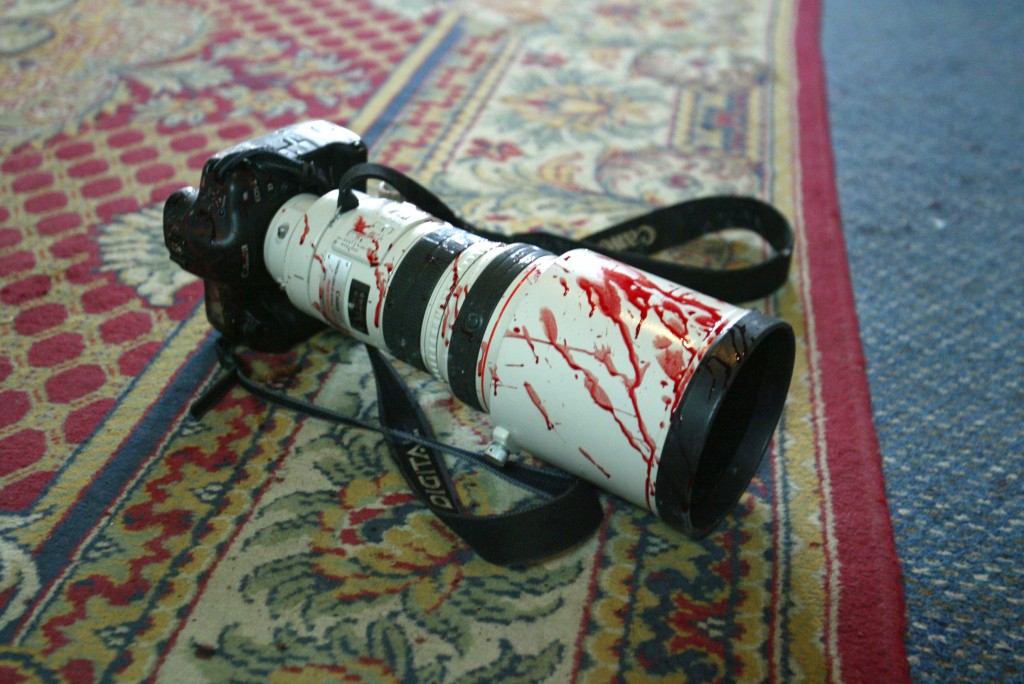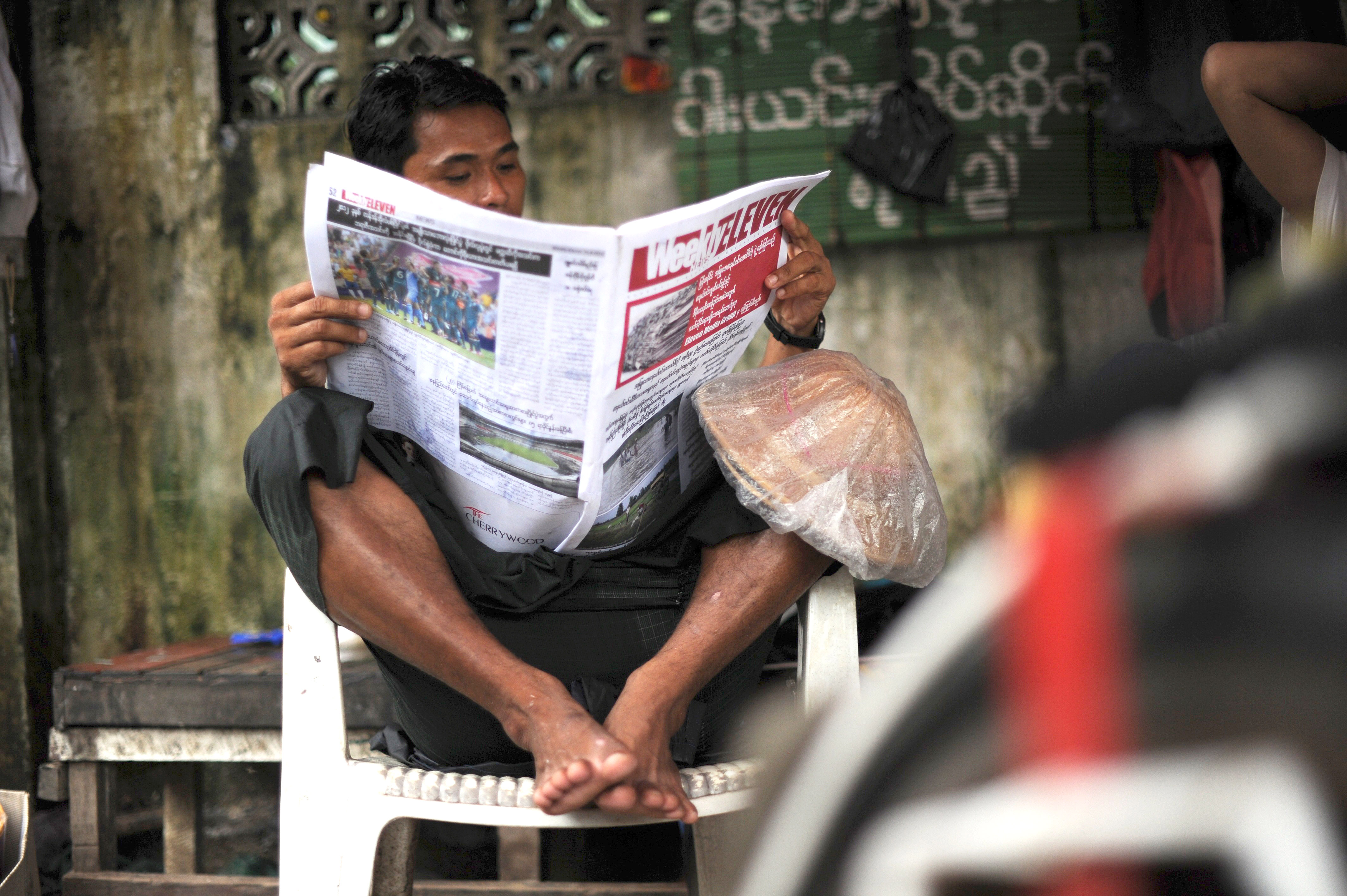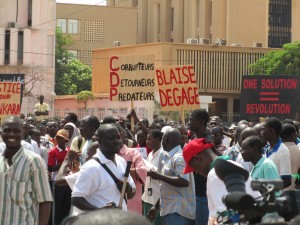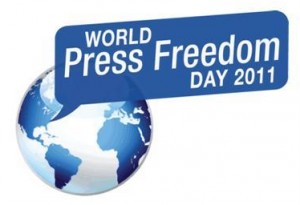Search Results for Tag: censorship
Free speech declines in the information age, endangering journalists

Patrick Baz/AFP/Getty Image
Journalists are being imprisoned in Turkey, the Venezuelan media has been brought under government control and in Syria, dozens of journalists have been killed or threatened to silence with torture. The global spread of the internet was originally expected to usher in an age of participation and democracy. Yet, free speech is in a crisis, according to Joel Simon, executive director of the Committee to Protect Journalists. And it’s not just free speech that’s under attack, he points out, but also journalists – the last three years have been the most dangerous for journalists in at least two decades.
![]() read more
read more
Myanmar journalist cautiously optimistic about press freedom

© Soe Than WIN/AFP/Getty Images
The media landscape in Myanmar is rapidly opening up. Last year, the government ended the direct censorship of the country’s media after almost fifty years of some of the most draconian press laws in the world. Privately owned newspapers are flourishing and newspaper stands now feature on many street corners. Reporters Without Borders even talked of “historic progress” in its last report on the country’s media health.
One of the few newspapers which was allowed to be published during Myanmar’s military rule was The Myanmar Times. The paper’s managing director, Zaw Win Than, has seen many changes since he first started working there as a journalist in 2006. DW Akademie’s Nadine Wojcik asked him about the shifts in the media landscape since the military junta ended in 2011.
![]() read more
read more
Myanmar: Heading towards freer media
 After decades of censorship, Myanmar is aiming to democratize its media system. In cooperation with UNESCO, the government recently arranged an international media conference. DW Akademie was there.
After decades of censorship, Myanmar is aiming to democratize its media system. In cooperation with UNESCO, the government recently arranged an international media conference. DW Akademie was there.
“I would like to see you all again – in a country with a free and democratic media,” said Ye Htut, Director General of Myanmar’s Ministry of Information, as he said goodbye to the 250 participants attending the media conference in Rangoon.
Until recently, a statement like that would have been unthinkable. “I’m experiencing Myanmar as very open in an impressive way. The atmosphere in this remarkable conference is honest and very sincere,” reports Helmut Osang, DW Akademie’s coordinator for media development.
![]() read more
read more
Reporting the mutinies and civil unrest in Burkina Faso
 Journalists in Burkina Faso have faced difficult, dangerous and unpredictable conditions this year covering military mutinies, looting as well as civil unrest. The country has been gripped by a series of crises for several months. At least seven people including a young girl were killed when pro-government forces of President Blaise Compaoré quashed a mutiny in Bobo Dioulasso over May and June. This followed an earlier mutiny of soldiers in April. As a result of this violence, President Compaoré sacked top leaders of the military as well as his prime minister. The mutinies were preceded by violent student demonstrations in February. The protestors demanded justice after the killing of a university student in Koudougou, in the central-west of the country. Five police officers were charged with beating the student to death.
Journalists in Burkina Faso have faced difficult, dangerous and unpredictable conditions this year covering military mutinies, looting as well as civil unrest. The country has been gripped by a series of crises for several months. At least seven people including a young girl were killed when pro-government forces of President Blaise Compaoré quashed a mutiny in Bobo Dioulasso over May and June. This followed an earlier mutiny of soldiers in April. As a result of this violence, President Compaoré sacked top leaders of the military as well as his prime minister. The mutinies were preceded by violent student demonstrations in February. The protestors demanded justice after the killing of a university student in Koudougou, in the central-west of the country. Five police officers were charged with beating the student to death.
![]() read more
read more
Press Freedom and Windhoek – 20 years on
It's worth noting that this year's World Press Freedom Day coincides with the 20th anniversary of the Windhoek Declaration on Promoting Independent and Pluralistic Media.
Take a moment in your day to check out the document.
At a first read though, you could not be blamed for thinking that much of what was noted in point 6 of the declaration could apply in many African countries in 2011.
"In Africa today, despite the positive developments in some countries, in many countries journalists, editors and publishers are victims of repression – they are murdered, arrested, detained and censored, and are restricted by economic and political pressures such as restrictions on newsprint, licensing systems which restrict the opportunity to publish, visa restrictions which prevent the free movement of journalists, restrictions on the exchange of news and information, and limitations on the circulation of newspapers within countries and across national borders. In some countries, one party States control the totality of information."
![]() read more
read more





Feedback